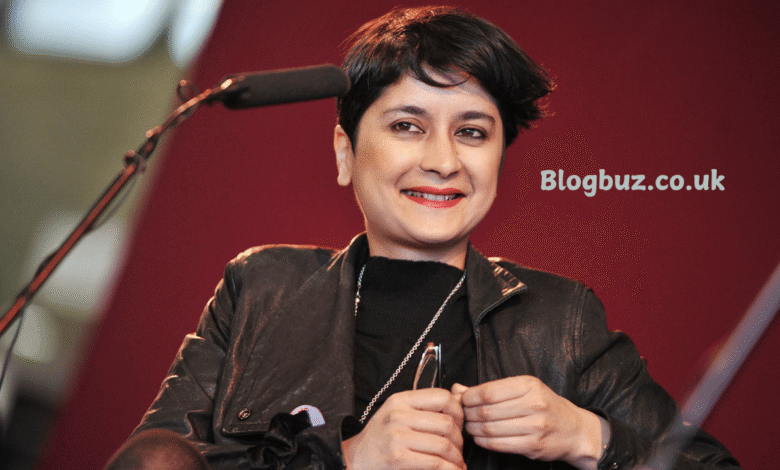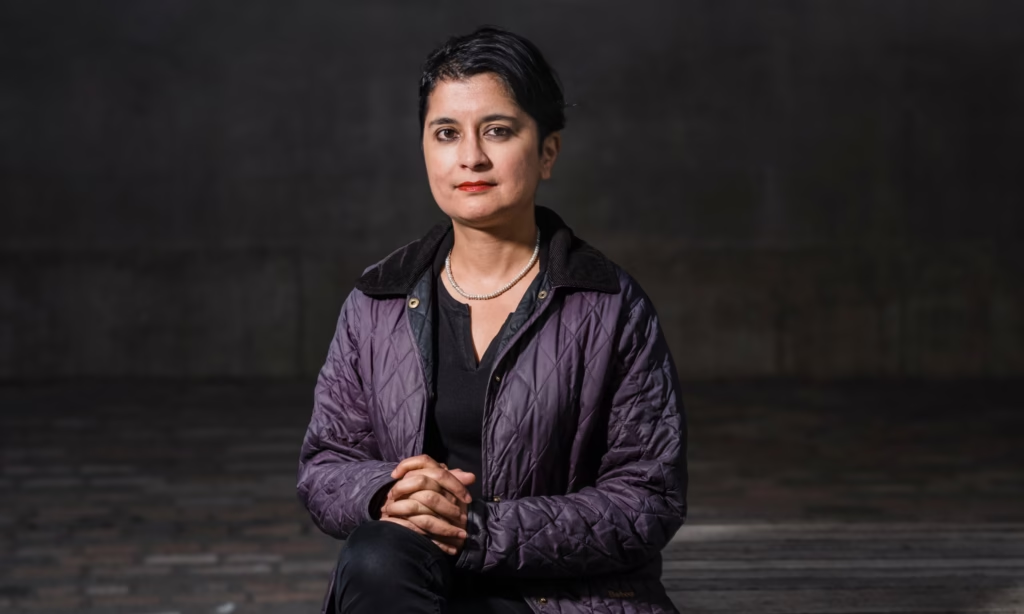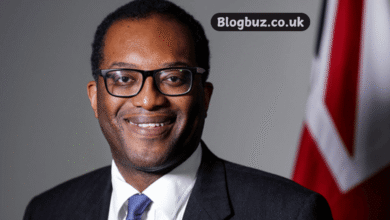Shami Chakrabarti: A Defender of Human Rights and Civil Liberties

Shami Chakrabarti is mentioned, it evokes a legacy of tireless advocacy for human rights, civil liberties, and justice in the United Kingdom. A lawyer, campaigner, and political figure, Chakrabarti’s work has influenced primary debates on privacy, surveillance, and freedom in modern Britain. From her tenure as Director of Liberty to her role in the House of Lords, her journey reflects an unwavering dedication to the principles of equality and justice.
Early Life and Education of Shami Chakrabarti
Shami Chakrabarti was born on June 16, 1969, in London, to Bengali parents who had migrated from India. Raised in Harrow, a suburb of London, Chakrabarti was exposed to the values of fairness and equality at an early age — ideals that later shaped her career.
She attended Harrow School for Girls and then proceeded to study law at the prestigious London School of Economics (LSE), where she earned her Bachelor of Laws (LLB) degree. During her university years, she developed a strong interest in social justice and public policy, laying the groundwork for her lifelong passion for civil rights.
Legal Career and Early Work
After completing her education, Shami Chakrabarti was called to the Bar in 1994. She practiced as a barrister at Middle Temple, focusing on public law and human rights cases. Her commitment to defending the underrepresented led her to join the Home Office in 1996, where she worked as a legal adviser.
During her time at the Home Office, she acquired valuable insight into the inner workings of government and the legal system. However, it was her next move — joining the human rights organization Liberty — that would make her a household name.
Shami Chakrabarti and Her Time at Liberty

In 2001, Shami Chakrabarti joined Liberty (the National Council for Civil Liberties) as an in-house lawyer. Just two years later, in 2003, she became its Director — a role she would hold for over a decade.
Her leadership coincided with one of the most challenging periods for civil liberties in the United Kingdom. Following the 9/11 terrorist attacks, the UK government introduced sweeping anti-terrorism laws that expanded state surveillance and detention powers. Chakrabarti emerged as one of the strongest voices opposing measures she viewed as threats to individual freedom.
She became a prominent figure on television and in public debates, defending the principles of liberty and privacy. Her calm yet firm advocacy earned her both admirers and critics. Under her direction, Liberty campaigned on issues such as:
- Opposing indefinite detention without trial
- Challenging mass surveillance programs
- Defending the Human Rights Act
- Promoting equality and anti-discrimination laws
Her eloquence and courage in confronting government policies earned her the nickname “the most dangerous woman in Britain,” a title she wore with pride, as it underscored her impact on public policy.
Notable Achievements at Liberty
During her 13-year tenure as Director, Shami Chakrabarti transformed Liberty into one of the UK’s most respected human rights organizations.
Some of her key achievements include:
- Campaign against ID cards (2006–2010): Chakrabarti led a successful campaign opposing the government’s proposal for national ID cards, arguing it would erode privacy. The scheme was eventually scrapped.
- Opposition to the “Snooper’s Charter”: She vocally resisted government efforts to increase online surveillance powers.
- Public education on rights: She helped make Liberty a central voice in public understanding of civil rights, appearing frequently on the BBC and other networks.
By the time she stepped down in 2016, Liberty had become synonymous with her name — a testament to her influence and integrity.
Shami Chakrabarti and the Leveson Inquiry
In 2011, Shami Chakrabarti was appointed to the Leveson Inquiry, which investigated the culture and ethics of the British press following the phone-hacking scandal. Her participation lent credibility to the inquiry, and she collaborated with other notable figures to propose reforms in media conduct.
She notably refused to accept payment or expenses for her role, reinforcing her image as a public servant dedicated to principle over profit. Her contributions focused on the need for press accountability balanced with freedom of expression — a theme consistent with her broader human rights philosophy.
The Labour Party and the Chakrabarti Inquiry
After leaving Liberty in 2016, Shami Chakrabarti was asked by then-Labour leader Jeremy Corbyn to lead an inquiry into antisemitism and racism within the Labour Party. The resulting Chakrabarti Report was published in June 2016, recommending clearer disciplinary procedures and greater education on antisemitism and discrimination.
However, controversy followed soon after. Later that year, Chakrabarti was granted a peerage, becoming Baroness Chakrabarti of Kennington, and was appointed as Shadow Attorney General for England and Wales. Critics alleged that her peerage undermined the perceived independence of her report.
Despite the controversy, she defended her integrity, stating that the offer of a peerage came later and did not influence her findings. Many within the Labour movement continued to support her, acknowledging her lifelong dedication to justice and equality.
Political and Legislative Contributions
As a member of the House of Lords, Shami Chakrabarti has remained a vocal advocate in legislative debates. She has spoken passionately on issues such as:
- The importance of the Human Rights Act
- The dangers of mass surveillance
- Refugee rights and humanitarian obligations
- Gender equality and diversity in law and politics
Her speeches often emphasize the balance between security and freedom — a theme that has defined her entire career.
From 2016 to 2020, as Shadow Attorney General, she helped shape Labour’s legal and constitutional policies. She continues to advocate for justice reform and protection of civil liberties across party lines.
Publications and Views
Shami Chakrabarti has also contributed to public discourse through her writing. Her 2014 book, “On Liberty,” examines the significance of human rights and the risks associated with authoritarian laws. The book received critical acclaim and was praised for its clarity, conviction, and accessibility.
In 2023, she published “Human Rights: The Case for the Defence,” a passionate argument in favor of the Human Rights Act amid calls by some politicians to replace or repeal it. The book reaffirms her belief that human rights are universal and must be protected against populist attacks.
Chakrabarti has consistently warned against the normalization of excessive surveillance and the erosion of privacy, arguing that democracy depends on citizens’ ability to live without constant state oversight.
Awards and Recognition
Over the years, Shami Chakrabarti has received numerous awards and honors for her contributions to law and society, including:
- Honorary doctorates from several universities
- Inclusion in BBC Radio 4’s Woman’s Hour Power List of influential women in the UK
- Recognition in the House of Lords Appointments Commission for her service to human rights
She was also made a CBE (Commander of the Order of the British Empire) in 2007 for her services to human rights.
Shami Chakrabarti’s Personal Values and Legacy
At the core of Shami Chakrabarti’s work is a steadfast belief in equality, justice, and compassion. She has frequently emphasized the importance of empathy in politics and law, reminding her audience that liberty is not a luxury but a fundamental necessity.
Her legacy is not only defined by the cases she fought or the laws she influenced but by the generations of activists and lawyers she has inspired. Her career demonstrates that standing up for human rights often means challenging power — and doing so with integrity and grace.
Conclusion: The Enduring Impact of Shami Chakrabarti
Shami Chakrabarti stands as one of the most respected and influential voices in modern British public life. Her leadership at Liberty, her political engagement, and her continued advocacy for justice make her a defining figure in the ongoing struggle for human rights.
You May Also Read: Ifet Anwar: A Deep Insight into the Life and Legacy of a Scottish-Pakistani Legal Professional




